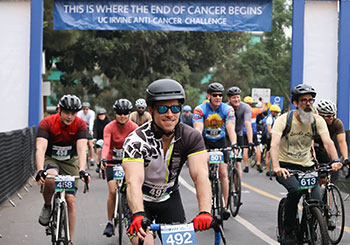Genetic Evaluation, Testing and Counseling Services
Advances in genetics have made it possible to determine your risk of developing a hereditary cancer or a genetic disorder. Prenatal tests also can detect inherited disorders and abnormalities, such as neural tube defects, Down syndrome and cystic fibrosis in a developing fetus.
Our certified UCI Health genetics counselors and medical geneticists are experts in diagnosing hereditary conditions and in educating people about the risk of passing them to their offspring.
Integrating the most recent advances in genetic technologies with comprehensive and compassionate healthcare, we provide the following services:
- Genetic cancer risk assessments for people who may have cancer themselves or a family history of cancer
- Medical genetics consultations for people who suspect they may have a genetic disorder based on physical findings or family history
- Preconception and prenatal genetic consultations for people concerned about the risk for birth defects or genetic abnormalities
For more information or to schedule a consultation, please call us at 714-456-7002.
Our team
Our medical geneticists and genetic counselors provide our patients with a continuum of care throughout their genetic testing and counseling experience.
Above all, we emphasize close communication between our various team members, our patients and their significant relatives.
Our team members include:
|
|
Our physicians and counselors see patients at UCI Medical Center in Orange, UCI Health Gottschalk Medical Plaza in Irvine and the Stramski Development Center in Long Beach.











